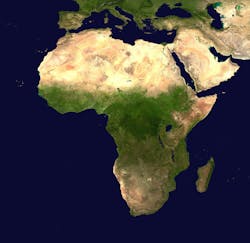CDC supports WHO declaration of PHEIC for Ebola outbreak in eastern region of DRC
The declaration was made by WHO after the IHR Emergency Committee cited recent developments in the outbreak in making its recommendation, including the first confirmed case in Goma, a city of almost two million people in the DRC on the border with Rwanda and the gateway to the rest of DRC and the world. WHO cautioned against imposing trade or travel restrictions, which would have a negative impact on the response and on the lives and livelihoods of people in the region.
As part of the Administration’s whole-of-government effort, CDC experts are working with the United States Agency for International Development (USAID) Disaster Assistance Response Team (DART) on the ground in the DRC and the American Embassy in Kinshasa to support the Congolese and international response. The United States government, including CDC, is working with DRC, Uganda, WHO, and other partners to support the current Ebola outbreak response by providing technical assistance and expertise in disease tracking, case investigation, contact tracing, case management, infection prevention and control, safe burials, community engagement and social mobilization, risk communication and health education, behavioral science, laboratory testing, border health, data management, vaccination campaigns, and logistics.
To rapidly identify cases and prevent further spread of Ebola, CDC is working with the U.S. Embassy in DRC to preposition CDC staff in Goma to rapidly respond to hotspots where the security situation is permissible. As of July 16, 2019, CDC staff have conducted 311 deployments to the DRC, neighboring countries, and WHO headquarters. CDC has 246 permanent staff in the three high-risk countries bordering the outbreak (South Sudan, Rwanda, Uganda), including 43 in DRC. DRC has more than 150 graduates of CDC’s Field Epidemiology and Laboratory Training Program who are playing a central role in this public health response.
The outbreak in DRC is occurring in a region where there are armed conflict, outbreaks of violence, and other problems that complicate public health response activities and increase the risk of disease spread both locally within DRC and to neighboring countries. CDC continues to provide technical assistance to the ministries of health of DRC, Uganda, and other neighboring countries, in collaboration with the USAID Disaster Assistance Response Team (DART), the U.S. Embassy in Kinshasa, the Department of State, the World Health Organization (WHO), and other local and international partners, to ensure the response is robust and well-coordinated and brings the outbreak to an end.

